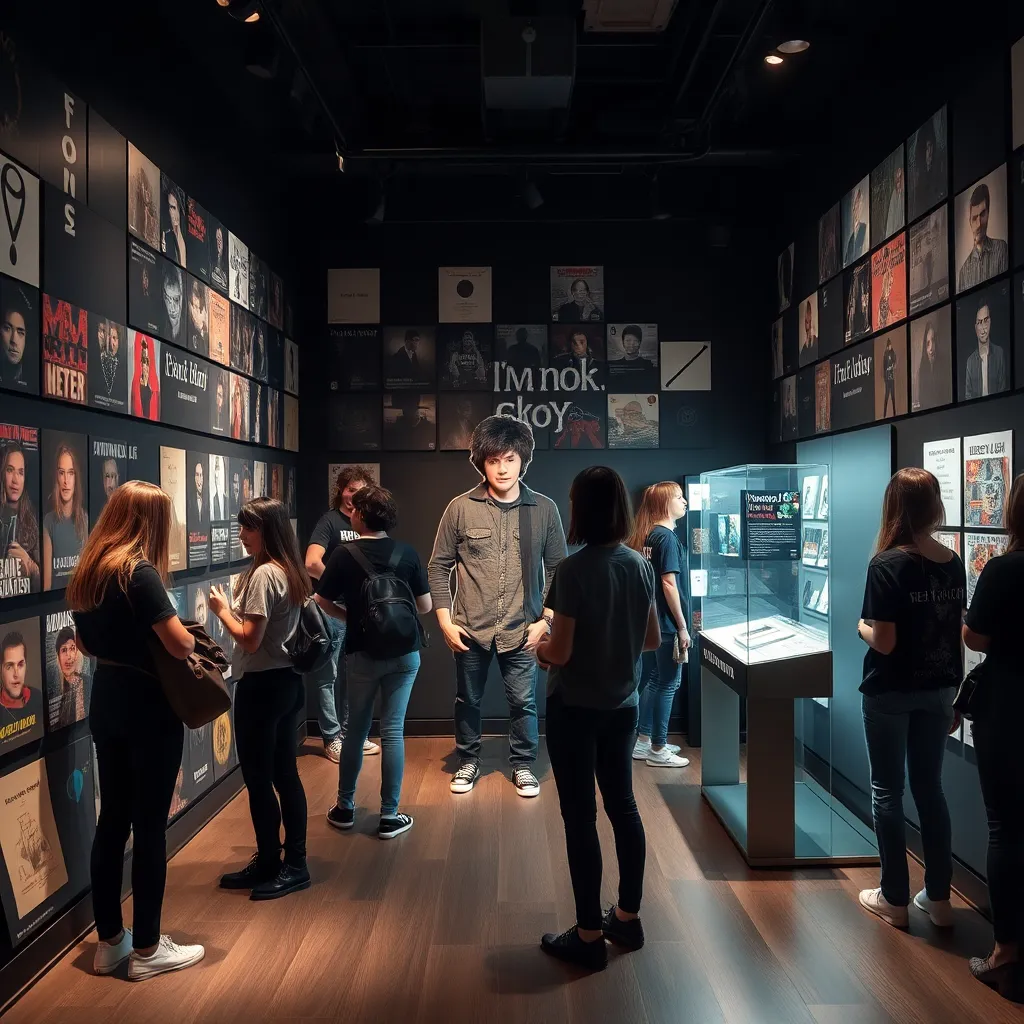A Nostalgic Dive into Emo Culture
London, England
In the heart of London, the Barbican Music Library has become an unexpected pilgrimage site for those who shed tears over their My Chemical Romance posters and still wear studded belts with pride. The exhibition, titled “I’m Not Okay: An Emo Retrospective,” has turned into one of the most visited displays of the year, attracting visitors from all walks of life—those who once thrived in black eyeliner and those merely curious about the phenomenon that was emo culture.
The Emotional Rollercoaster
The exhibition is not just a collection of relics from the early 2000s; it’s an emotional rollercoaster that takes visitors through the highs and lows of the genre. From the angst-filled lyrics that spoke to the heart of a generation to the fashion choices that defined a subculture, the curated pieces evoke a sense of nostalgia that resonates deeply with attendees.
“I came here to see the old T-shirts and maybe cry a little,” confessed Jessica Thompson, a 29-year-old marketing executive who admitted to having a once-obsessive collection of emo memorabilia. “I didn’t expect to feel so… validated. I mean, I’m still not okay, but at least I know I’m not alone!”
Features and Highlights
Among the standout features is a life-sized cardboard cutout of Gerard Way, the lead singer of My Chemical Romance, set against a backdrop of moody, dimly lit walls adorned with iconic album covers. There’s even a “Cry Station,” where visitors can record their emo anthems and shed a tear or two while reminiscing about their rebellious youth.
Emo Fashion Parade
A section dedicated to emo fashion showcases classic looks: skinny jeans, Converse shoes, and an array of band tees that seem to whisper tales of heartbreak and angst. Attendees have even been spotted donning their own emo attire, some sporting hairstyles that could only be described as gravity-defying.
“I thought the emo phase was just a phase, but here I am, still rocking the look!” laughed Mark, a 34-year-old software developer. “It’s like a time capsule for my teenage self. I even brought my old eyeliner!”
The Soundtrack of Sadness
The auditory experience is just as compelling as the visuals, featuring a carefully curated playlist that includes hits from Fall Out Boy, Paramore, and Panic! At The Disco. The library has even set up listening stations where visitors can immerse themselves in the sounds that defined a generation.
“I forgot how cathartic it is to scream along to ‘I Write Sins Not Tragedies’ at the top of my lungs!” exclaimed Sarah Evans, a local university student who brought her friends along to indulge in a little emo bonding.
The Legacy of Emo
As the exhibition continues to attract visitors, it raises questions about the lasting impact of emo culture on today’s music and youth. Many attendees have noted how the themes of heartbreak and resilience remain relevant, especially in the current climate of uncertainty and change.
“It’s fascinating to see how emo has evolved, yet the core emotions remain the same,” said Liam Johnson, a music historian who attended the exhibit. “There’s something timeless about feeling misunderstood and channeling that energy into music. It’s a rite of passage for many.
Conclusion: A Celebration of Tears
The “I’m Not Okay: An Emo Retrospective” at the Barbican Music Library is more than just an exhibition; it’s a celebration of a culture that allowed millions to express their feelings in a world that often dismisses vulnerability. As visitors leave the exhibit, they carry with them not just memories of their emo days but a renewed sense of connection with those who felt the same.
So, whether you’re an emo veteran or a curious newcomer, the Barbican invites you to embrace your inner angst and join the celebration. After all, in a world that sometimes feels chaotic and confusing, it’s comforting to know that we’re all just a little bit neurotic.
“I think I’ll leave with some new friends and a few tears shed,” said Jessica as she walked out, clutching a limited edition ‘Emo Forever’ tote bag. “And maybe I’ll rethink that eyeliner!”
In the end, the Barbican isn’t just a library; it’s a sanctuary for the emo soul, a place where every tear shed is a step toward healing, and every song played is a reminder that it’s okay to not be okay.
